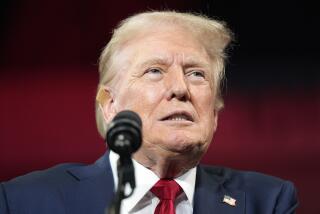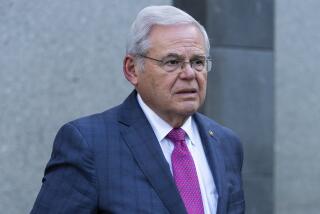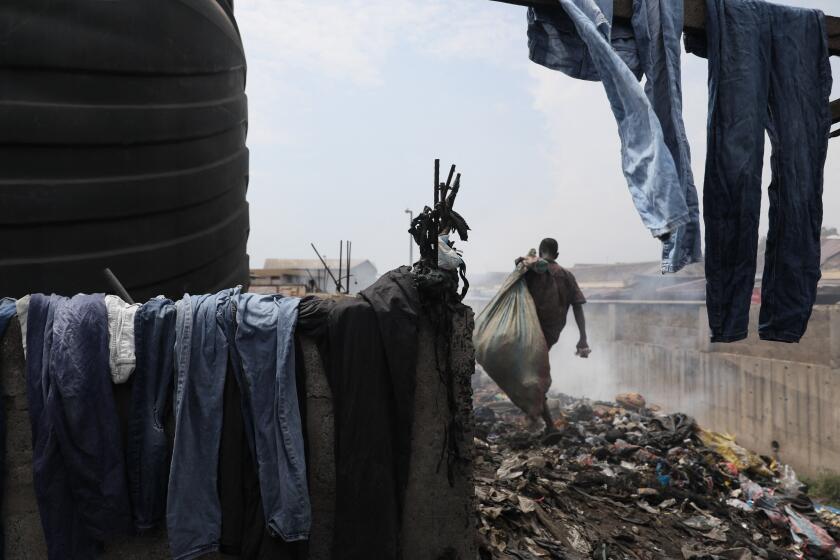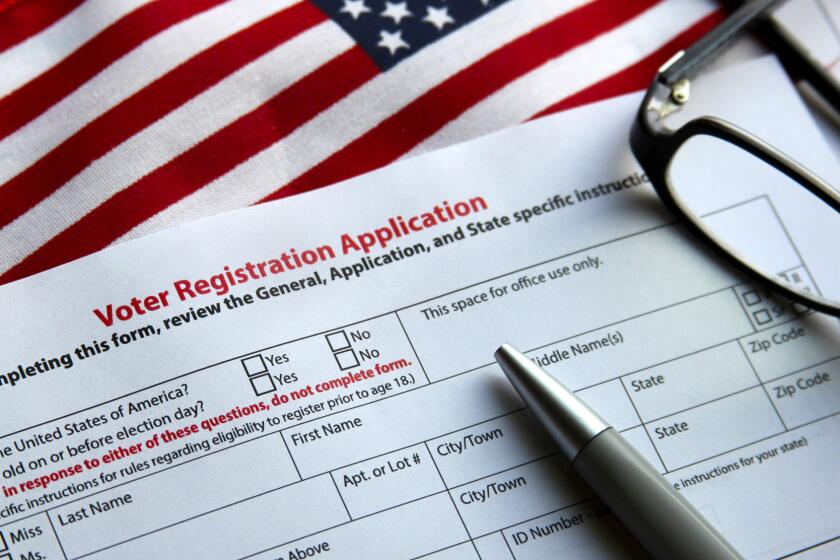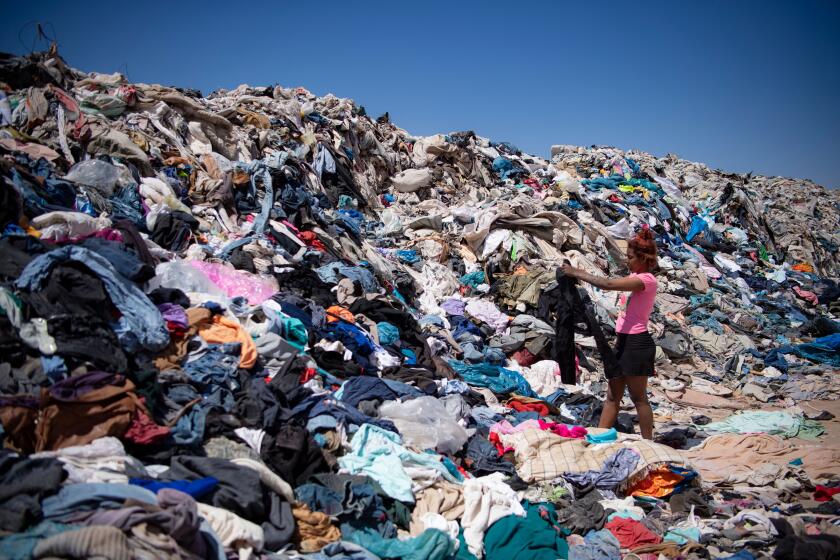Prosecutors Impanel Grand Jury to Collect Evidence on Rich Pardon
Prosecutors in New York have convened a federal grand jury to begin collecting potential evidence for their investigation of the pardon of fugitive commodities broker Marc Rich.
The jury already has issued subpoenas and is collecting the fund-raising “lists and documents” for Bill Clinton’s presidential library--a clear sign that it is looking for evidence of a quid pro quo between the Rich pardon and donations to the former president.
Separately, federal prosecutors in Minneapolis have asked the Justice Department for advice on whether they should open a grand jury investigation into Clinton’s commutation for Carlos Vignali of Los Angeles. Vignali, a convicted drug dealer, was released after a lobbying campaign by Southern California elected officials and $200,000 in fees paid to Clinton’s brother-in-law Hugh Rodham.
The New York investigation began after Mary Jo White, the U.S. attorney there, expressed dismay over Clinton’s last-minute pardon of Rich. The involvement of a grand jury means that prosecutors may believe they can develop enough evidence to secure a criminal indictment in the pardon scandal that has tarnished Clinton’s legacy since he left the White House on Jan. 20.
Federal prosecutors in New York declined to comment Tuesday about the scope of their probe. But the fact that a grand jury has been impaneled allows them to use it as a vehicle to review other pardons that Clinton granted in cases originating there.
Those include clemencies for four Hasidic Jews convicted of bilking tens of millions of dollars from the government, and Harvey Weinig, who was sentenced to 11 years in prison for laundering $19 million for a Colombian drug cartel.
The Hasidic clemencies have caused a stir because the group from New Square, N.Y., voted overwhelmingly for Hillary Rodham Clinton in November’s election for U.S. senator from New York. After she won election, she sat in on a White House meeting in which the community’s leader pleaded for the clemencies with President Clinton.
In the Weinig case, Clinton cut his prison term in half after his petition for clemency was handled by Reid Weingarten, a Washington attorney who has represented a number of friends of the former president, including two Clinton Cabinet members and Charlie Trie, a key figure in the Clinton fund-raising scandal.
Clinton pardoned 15 people whose cases originated from White’s district in New York.
The former president’s lawyer, David E. Kendall, confirmed the grand jury’s probe when he advised congressional investigators Tuesday that they may have to wait to see the library foundation’s records until after the grand jury completes its review.
“The foundation is in the process of complying with a subpoena issued by a grand jury of the United States District Court for the Southern District of New York,” Kendall wrote in a letter to the House Government Reform Committee, and will produce “lists of and documents pertaining to all persons who have given or pledged to the foundation an amount in excess of $5,000.”
Denise Rich, the fugitive’s former wife, has donated $450,000 to the foundation and more than $1 million to the Democratic Party. Prosecutors as well as congressional investigators want to know whether any of that money actually came from Marc Rich, who has lived outside the country since 1983.
Foreign money is prohibited from U.S. political campaigns.
One way to sort that out is to examine the divorce settlement between Marc and Denise Rich, which might show how likely it is that she alone could afford to contribute such large sums of money.
Meanwhile, Marc Rich refused to testify before the House panel or provide any documents related to his pardon effort, becoming the third person to turn the committee down after his former wife and her friend, former Democratic Party fund-raiser Beth Dozoretz, each invoked the 5th Amendment against self-incrimination.
Marc Rich’s lawyer, Laurence A. Urgenson of Washington, informed the panel Tuesday that “while I appreciate the committee’s view of its responsibilities, its investigation and its desire to speak with Mr. Rich,” his client will not be cooperating.
Urgenson said he too was worried about the danger of his client incriminating himself. “I am mindful that the various investigations underway encompass a wide range of matters,” he said, a clear reference to the New York grand jury investigation.
“In view of present circumstances,” Urgenson added, “we would respectfully request that discussions regarding his possible appearance be deferred.”
Also Tuesday, Clinton waived executive privilege for three of his top White House aides in preparation for their testimony Thursday before the House Government Reform Committee.
The former president, Kendall said, “will interpose no executive privilege objections to the testimony of his former staff concerning these pardons, or to other pardons and commutations he granted.”
Scheduled to testify are former Clinton Chief of Staff John Podesta, former White House Counsel Beth Nolan and Bruce Lindsey, a longtime Clinton confidant and White House advisor.
Executive privilege is the right of a president to keep secret the advice and deliberations that go into his decision-making.
The former Clinton aides will be asked about how Clinton decided to pardon Rich, as well as why he granted some other controversial clemencies--the Vignali commutation and a pardon for herbal marketer Almon Glenn Braswell.
Vignali’s father, Horacio Vignali, and Braswell each paid $200,000 to Hugh Rodham to push for the clemencies. Rodham has since returned the money.
In the Vignali matter, Assistant U.S. Atty. Andrew Dunne in Minneapolis, who was the prosecutor in the case, said his office is waiting for word from the Department of Justice on whether they too should open a grand jury investigation.
“There has been some discussion, and it is under advisement,” Dunne said.
He added that there may be jurisdictional problems for the Minneapolis office in that the $200,000 fee apparently was transacted between Horacio Vignali in Los Angeles and Rodham, who lives and works in Florida, and that any influence Rodham might have used with his brother-in-law would have been applied at the White House.
On the matter of the Clinton library records in the Rich case, Kendall and the committee have reached a tentative agreement whereby the committee chairman, Rep. Dan Burton (R-Ind.), and its ranking Democrat, Rep. Henry A. Waxman of Los Angeles, and two staffers would review the records for the names of those who gave $5,000 or more.
Kendall said this would include about 150 names on the donor and pledge lists.
The foundation has received more than 35,000 other donations of $5,000 or less.
*
Times staff writer John J. Goldman contributed to this story.
More to Read
Sign up for Essential California
The most important California stories and recommendations in your inbox every morning.
You may occasionally receive promotional content from the Los Angeles Times.
